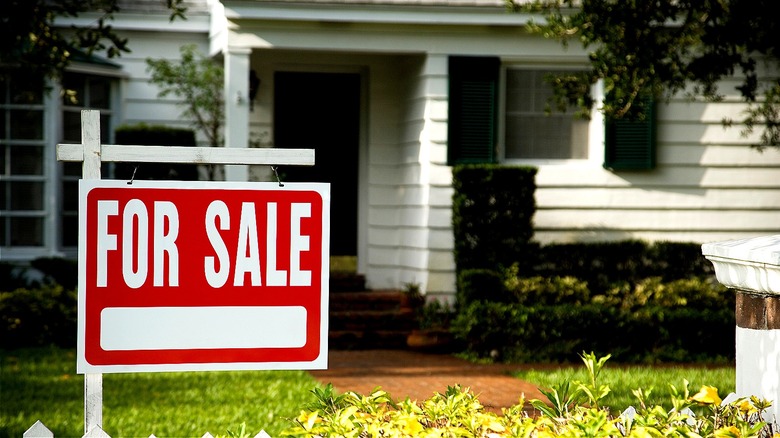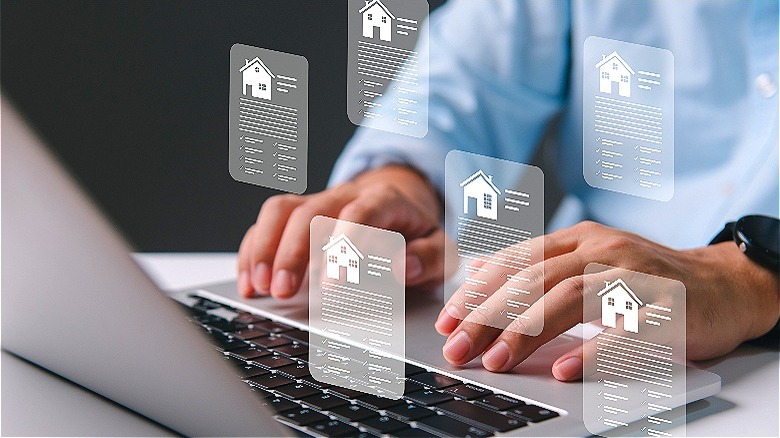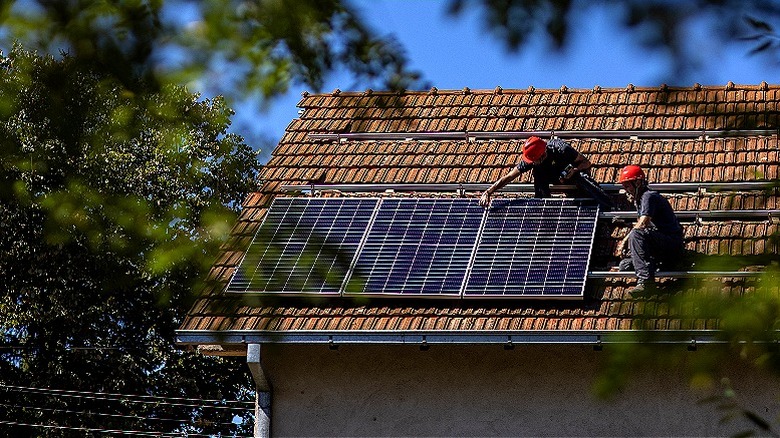The Sneaky Mistake That's Destroying Your Home's Resale Value
While the current market might not be the best for buying or selling a home (thanks to interest rates, courtesy of this Federal Reserve committee), you might still be thinking about selling your home in the future. While waiting for interest rates to come back down, you might be considering upgrades or renovations that could potentially help you sell your home for a higher price. While there can be a lot to know about selling a home, especially when it comes to what specific home improvement projects might actually have a good return on investment, certain larger trends can be important. This brings us to sustainability and environmentally friendly upgrades.
While, once, energy upgrades might have been considered an added perk, they increasingly have become a requirement for homebuyers. As Josh Dotoli, founder of a top real estate firm in Florida, explained to GOBankingRates, "In today's environmentally conscious market, homes that are not energy-efficient can be less attractive to buyers. Failing to upgrade insulation, windows, or heating and cooling systems can hurt your home's value." It's also important to realize that, in addition to increasing your home's potential resale value when you sell someday, adding energy-efficient systems to your home can save you money on your monthly utilities.
Another important consideration is the sheer range of available energy-efficient options now available to homeowners. From solar to insulation to even specific kinds of windows, there are more options than ever for finding the right energy upgrades for your specific property.
US home values
According to the Office of Energy Efficiency & Renewable Energy, making eco-friendly upgrades can have a significant impact on your home's resale value. Case studies (conducted by researchers at both the University of California at Berkeley and the University of California at Los Angeles) that analyzed home sales in Los Angeles County found that energy-upgraded homes sold for, on average, 9% more than less energy-efficient properties.
In HomeLight's Top Agent Insights for Summer 2022 (a survey of over 1,000 real estate agents), agents estimated the value that energy efficiency adds to a home had increased by 25% (bringing the total, at the time, from $6,556 to $8,246). You might be surprised to learn that part of this increased interest in eco-friendly upgrades is actually tied to inflation. Caroline Feeney, senior managing editor at HomeLight, explained, "In general, inflation is causing some buyers to be more cost-conscious, which is driving more interest in energy efficiency. The benefits of decreasing utility bills are only magnified when costs are rising in every sector."
Also, in the same year, the National Association of Realtors found that 63% of surveyed Relators (not to be confused with agents or brokers) reported that including energy-efficiency details within their promotional listings was "somewhat" to "very" valuable. Similarly, Zillow found that homes with environmentally-conscious features sold up to 10 days faster than those that did not.
Things to keep in mind
Even though there's an increased interest in eco-conscious home upgrades (along with the general belief that not having them could be destroying your home's resale value), just how much potential buyers might actually be willing to pay for these upgrades can vary significantly. For instance, the National Association of Home Builders found that only 15% of potential homebuyers reported being willing to pay more for homes described as environmentally friendly (despite 78% reporting being concerned about the planet). Potential buyers generally need to gain a more thorough understanding of how eco-friendly features will directly contribute to utility savings before being willing to pay more for a home. Yet, even when buyers were aware of the economic aspects, only 57% reported being willing to pay over $5,000 more for a home based on these factors.
It's worth calculating a cost comparison for different energy-efficient upgrades before taking the plunge. Certain upgrades, like solar, can save you a lot on your utilities but only pay off in the long term, meaning they'll be more useful in a home you plan to live in for a long time. Also, research the rebates and programs that might be available to you when upgrading your home. Depending on your state, county, or city, you could enjoy tax rebates or cheaper installation fees on certain energy-saving home upgrades that can help ease the financial burden of making those changes. A good example is the recently passed Inflation Reduction Act, which included several federal tax credits in addition to financing state rebates for energy-efficient and/or clean-energy home features, systems, and even home appliances.


